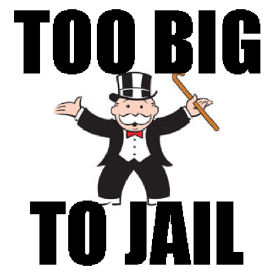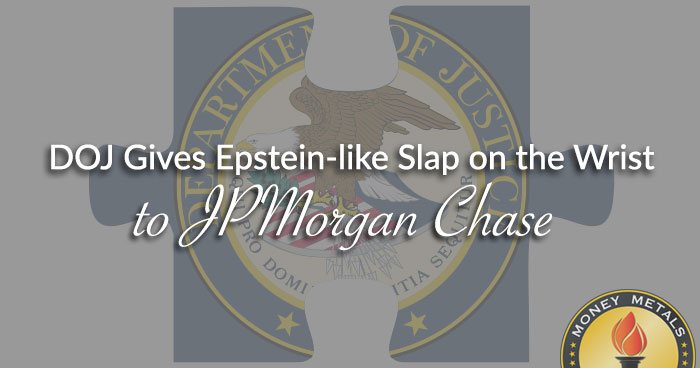Gold and silver investors may have little in common with Jeffrey Epstein’s teenage victims or violent “Black Lives Matter” rioters, but there is one issue upon which they might all agree. Our system of justice often fails.
Department of Justice officials refuse to apply the rule of law fairly. Their dereliction of duty is crushing confidence and generating outrage.
Last week, the DOJ ended the criminal prosecution of JPMorgan Chase Bank, settling for a $1 billion fine. No high-level executives will be sent to prison, and the bank’s trading privileges will not be limited in any way. Bank executives will simply write a check equivalent to less than 3% of 2019 net profits.

The fine will be paid using shareholder money. CEO Jamie Dimon and the other high-level executives who presided during the pervasive, decade-long swindle will not be writing any personal checks.
It was great public relations when DOJ officials announced the criminal inquiry and invoked RICO laws. Victims of the bank might have assumed investigators planned to throw the book at JPMorgan.
The Department of Justice should only be counted on to make sure well-connected and ultra-wealthy criminals are never held responsible for their deeds, whether it be JPMorgan executives or the people in Jeffrey Epstein’s little black book.
The penalty won’t even begin to match victims’ losses, or the bank’s ill-gotten gains, accrued during the years of crooked trading. And it certainly isn’t sufficient to make the bank think twice about cheating again, other than to perhaps do a better job of covering tracks.
The site JPMadoff.com has a clever way of laying out just what a massive criminal enterprise the Wall Street behemoth is. There are dozens of frauds and hundreds of thousands of victims.
Wall Street’s sharpest criminals have it figured out. The trick is to operate inside a public company and make sure politicians and regulators are well-greased.
The company may occasionally get prosecuted and pay some fines. But the corporate shell, which of course can’t be sent to prison, takes what little heat there is from authorities… and shareholders take care of the fines.
The best hope metals investors have for actual justice remains with the civil courts. Class action suits against JPMorgan, put on pause while the DOJ performed its sham prosecution, should soon resume. Attorneys have a cornucopia of damning evidence, including documents, chat logs, and voice recordings.
They will be presenting to juries, rather than to the bought and paid-for regulators. With a rap sheet as long and terrible as JPMorgan’s, we can hope these juries will be far less sympathetic than the bureaucrats at the DOJ.

About the Author:
Clint Siegner is a Director at Money Metals Exchange, a precious metals dealer recently named "Best in the USA" by an independent global ratings group. A graduate of Linfield College in Oregon, Siegner puts his experience in business management along with his passion for personal liberty, limited government, and honest money into the development of Money Metals' brand and reach. This includes writing extensively on the bullion markets and their intersection with policy and world affairs.





